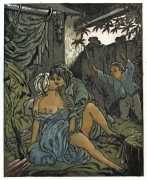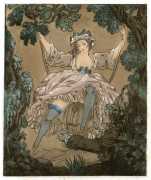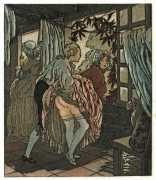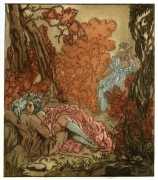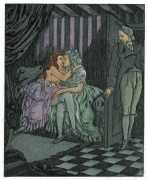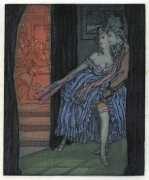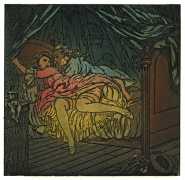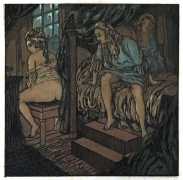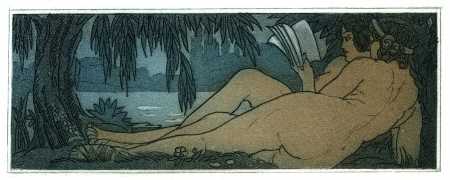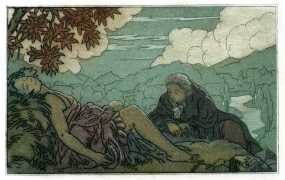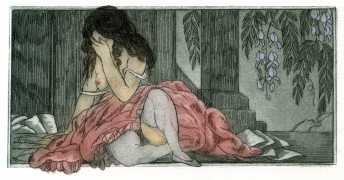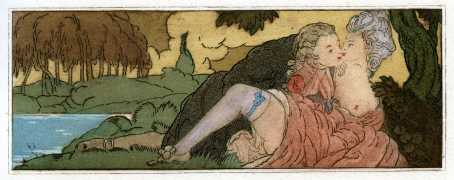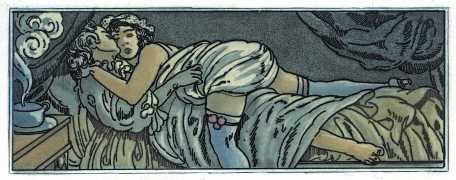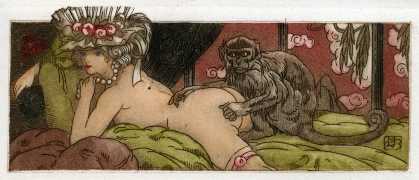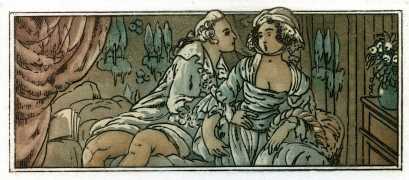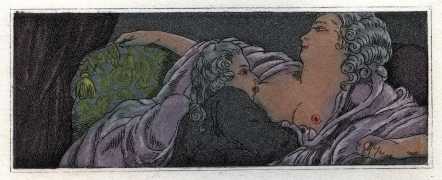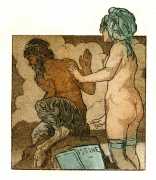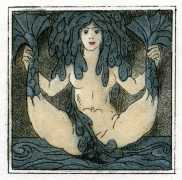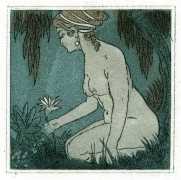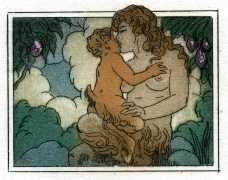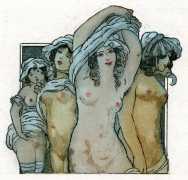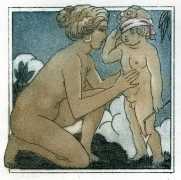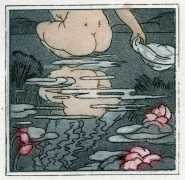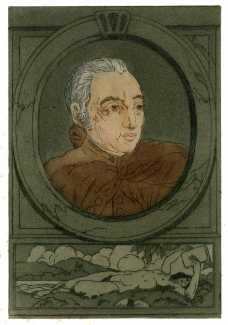 The eighteenth-century writer and social commentator Nicolas-Edme Réstif (sometimes spelt Retif) requires much more space than we have here to do him justice. Born at Sacy near Reims in north-east France, he was educated by the Jansenists at Bicêtre, but was involved in a sexual scandal and apprenticed as a printer at Auxerre. In 1760 he married Agnès Lebègue, a relative of his Auxerre teacher. Within a few years he was writing and printing his own books on a wide variety of subjects, and by his death he had produced some two hundred volumes, many of them printed by his own hand. At times Réstif suffered extreme poverty, but kept writing, most of his later works being autobiographical. He was a highly original thinker and a confirmed rebel, with fascinating ideas on a range of subjects from prostitution reform to communal living; he is thought to have been the first writer to use the word ‘communist’ in its modern meaning.
The eighteenth-century writer and social commentator Nicolas-Edme Réstif (sometimes spelt Retif) requires much more space than we have here to do him justice. Born at Sacy near Reims in north-east France, he was educated by the Jansenists at Bicêtre, but was involved in a sexual scandal and apprenticed as a printer at Auxerre. In 1760 he married Agnès Lebègue, a relative of his Auxerre teacher. Within a few years he was writing and printing his own books on a wide variety of subjects, and by his death he had produced some two hundred volumes, many of them printed by his own hand. At times Réstif suffered extreme poverty, but kept writing, most of his later works being autobiographical. He was a highly original thinker and a confirmed rebel, with fascinating ideas on a range of subjects from prostitution reform to communal living; he is thought to have been the first writer to use the word ‘communist’ in its modern meaning.
Between 1794 and 1797 he wrote the sixteen volumes of Monsieur Nicolas ou le coeur humain dévoilé (Monsieur Nicolas, or the Human Heart Unveiled), including his memories, his thoughts about ethical and social points, his hatreds, and above all his numerous loves, both real and fancied. He is particularly vivid in his descriptions of his early sexual awakening, women’s clothes and particularly their shoes being especially powerful, such that he is often cited as the first recorded shoe fetishist.
Fortunately for the reader, the de Becque-illustrated Monsieur Nicolas only recounts ‘quelques amours’, some of his numerous loves, including his childhood sweethearts Toinette and Marote, and his grand amour, Agnès Lebègue.
De Becque is credited for the Réstif illustrations under his real name. They show a development in his style towards a more adventurous use of colour, often at the darker end of the spectrum. As with all his work, they merit a close look at the detail, which at first glance often seems lost in the shadows.
Quelques amours de Monsieur Nicolas was published by the Paris publisher Baudel, in a limited numbered edition of 400 copies.


